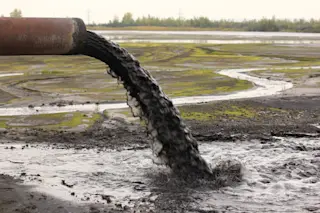Looks like there's an important new voice in the climate change debate. As Roger Pielke Jr. notes, Bill Gates recently offered some refreshing thoughts on climate policy, starting with this:
Conservation and behavior change alone will not get us to the dramatically lower levels of Co2 emissions needed to make a real difference. We need to focus on developing innovative technologies that produce energy without generating any CO2 emissions at all.
To this end, Gates charts a new path for climate advocates who can't get traction with doomsday scenarios and who now watch helplessly as chances for an international climate treaty grow dimmer by the day. Let's stop focusing on halfway measures, Gates argues, and just cut to the chase:
If CO2 reduction is important, we need to make it clear to people what really matters "“ getting to zero. With that kind of clarity, people will understand the need ...













